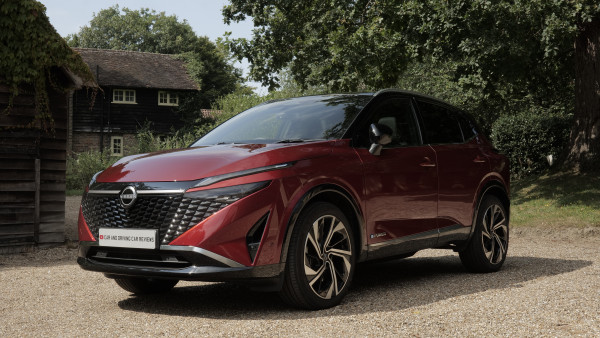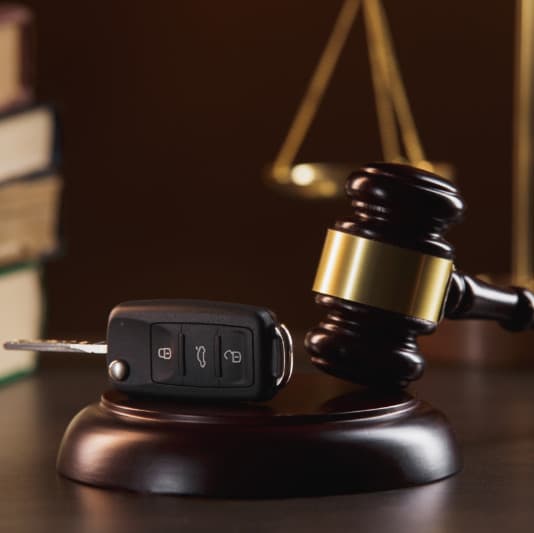Nissan's Qashqai e-POWER features what might just be the mid-sized SUV segment's cleverest drivetrain. Jonathan Crouch drives the revised version.
Ten Second Review
Nissan's Qashqai e-POWER offers a rather different stepping stone from combustion power to EV motoring. It's an interesting confection, always an EV yet also always petrol-powered. Who needs a hybrid? Here, we look at the now-smarter updated version of this model.
Background
Nissan calls the Qashqai e-POWER 'an electric car that you can fill up with petrol'. That sounds like a contradiction in terms doesn't it, but this powertrain really is difficult to classify. It can't be plugged in, but unlike a full-Hybrid, the engine never directly drives the wheels, its role instead being to power a front-mounted motor.
Nissan calls this 'a bridging technology' that'll help transition customers to the full-EVs they'll have to live with in the future. And this powertrain will be key to the brand in achieving its targeted 50% electrification sales mix by 2030. The Qashqai e-POWER first arrived in 2022, then in Spring 2024 was updated to create the car we're going to look at here.
Driving Experience
It's a fascinating drivetrain this - and Nissan hasn't messed with it as part of the mid-term updates made to this third generation Qashqai design. For a start, at 2.1kWh in size, the battery is about twice the size it would be in a conventional full-Hybrid. And it's topped up by a little three cylinder Variable Compression 1.5-litre turbo petrol engine that never directly powers the wheels. Forward motion is instead taken care of by single front axle-mounted motor which puts out 190PS and 310Nm of torque. Which is enough to propel the Qashqai e-Power to 62mph from rest in 7.9s.
Inevitably, it only works with auto transmission, but does so more smoothly than with the CVT autos used in some full-Hybrids thanks to a feature called 'linear tune' which ties engine speed to road speed. Nissan has also engineered in its 'i-Pedal' tech, which increases energy regeneration when you come off the throttle. This doesn't slow the car as much as it would with the company's LEAF and Ariya full-EVs, but it will mean that in normal motoring, you'll be using the brake pedal a lot less.
Design and Build
Apart from the badgework, there's nothing to designate this e-Power variant apart from more conventional Qashqais. So its shares this third generation model's most recent updates. Facelifts are generally nip and tuck affairs: not this one. Nissan decided that this third generation Qashqai needed a completely new look to help it stand out in its crowded market. Hence the more aggressive front end and the larger grille with finishing apparently inspired by the ancient armour scales of Japanese Samurai helmets. The front bumper is different, the headlamps are new and there's a sharper daytime running light signature. Smarter wheels, new LED tail lamp clusters and a revised lower bumper complete the changes. The tail lights include small floating elements below larger boomerangs and feature sequential indicators for the first time.
It's a lot harder to change interior architecture than it is to alter a few exterior panels and, sure enough, the changes are a lot more subtle inside. If you owned the original version of this MK3 model, you'll notice the smarter dash and centre console finishes, plus the plush upholstery, which can be partly quilted and features Alcantara inserts further up the range.
The bigger change lies with the centre screen - which is now 12.3-inches in size. The computer that runs it is now several times more powerful, enabling a switch further up the range to Google's Android Operating System. With this, apps can be downloaded directly onto the car's entertainment software itself, rather than by hooking up to a smartphone with 'Apple CarPlay' or 'Android Auto' (which you can of course still also do). Other cabin changes include new graphics for the instrument screen, a better quality camera for the 'Around View Monitor' system and a 64-colour ambient lighting set-up.
Obviously, nothing's really changed with regard to the back seat and the boot. The rear seat can take two adults comfortably, but three would be a squash. The boot (which can be accessed by a gesture-controlled powered tailgate) is rated at up to 509-litres in size (the same as an ordinary mild hybrid Qashqai), but reduces in capacity with plusher models. There's a compartment beneath the floor wide and deep enough to store the parcel shelf.
Market and Model
Prices for the Qashqai e-Power start from just under £35,000; that means an extra £2,000 over the less powerful, less efficient conventional DIGT158 2WD Xtronic model. The Qashqai e-POWER range starts with 'Acenta Premium' trim, then, as before, rises through 'N-Connecta' and 'Tekna' to 'Tekna+'. With a decent spec, you're probably going to be paying in the £37,000-£40,000 bracket for this enhanced Qashqai e-POWER - which is getting on for premium-like levels.
To be fair, you do get quite a lot more technology for your money with this improved version of this model. Take the included Nissan Connect app, which can now be had with features like live tracking of the car's location if it's stolen; and to prevent that from happening in the first place, it'll alert you if the car hasn't been locked. Upper-spec models also now get an improved version of Nissan's 'Around View Monitor' system; it now has a clever 3D function which allows the driver to monitor the car from eight different angles - the front, the rear, the sides and the corners, as well as from the top down.
As before, this Nissan can be equipped with Nissan's 'ProPILOT' driver assistance technology. The system is able to accelerate and brake the vehicle within a single-lane on a highway, plus this set-up takes care of steering duties and can adapt to things like changing speed limits. 'ProPILOT' can communicate with the Qashqai's blind-spot radars to help intervene with a steering input correction to help prevent a lane-change manoeuvre if there is a vehicle in the blind-spot zone.
Cost of Ownership
Let's get to the figures. This Qashqai e-Power delivers up to 55.4mpg on the combined cycle and up to 116g/km of CO2. That's with base 'Acenta Premium' trim. With the bigger wheels fitted further up the range, the readings rise a little - to 54.3mpg and 119g/km with top 'Tekna+' trim. But that's still pretty impressive for a 190PS engine. To give you some perspective, the base DIGT 140PS petrol Qashqai model with manual transmission only manages up to 44.8mpg and 142g/km in base-trimmed form.
So how has Nissan done it? Well, the engine's Variable Compression capability allows it to adjust compression ratio (between 8:1 and 14:1), giving both optimum performance and economy depending on the engine load. During low power demand scenarios - such as constant speed with a good state of charge in the battery - the compression ratio will be at the higher range, which optimises consumption and emissions. Under high demand for power, to charge the battery or supply power directly to the motor, a lower compression ratio will be activated which will maximise the engine's power output. The transition between differing compression ratios is seamless, with no input required from the driver. Clever. Insurance is group 30E-32E.
Summary
If you take the view that a Hybrid isn't quite 'EV' enough but you're put off by the range, price and charging issues that currently afflict Electric Vehicles, then you'll be interested in Nissan's e-Power technology. And should you be seeking a mid-sized family SUV, you'll find it works well fitted beneath the bonnet of this priciest Qashqai model.
Pricing could be an issue of course. For the money Nissan is asking here, you could have a Plug-in Hybrid with lower tax liability. But after looking at the e-Power concept, you might feel this clever Qashqai nails the eco-driving brief rather better than one of those, especially in this improved form. It's always an EV; yet always gives you engine range flexibility. There's a cost for that, but we can understand why you might see it as one well worth paying.


































